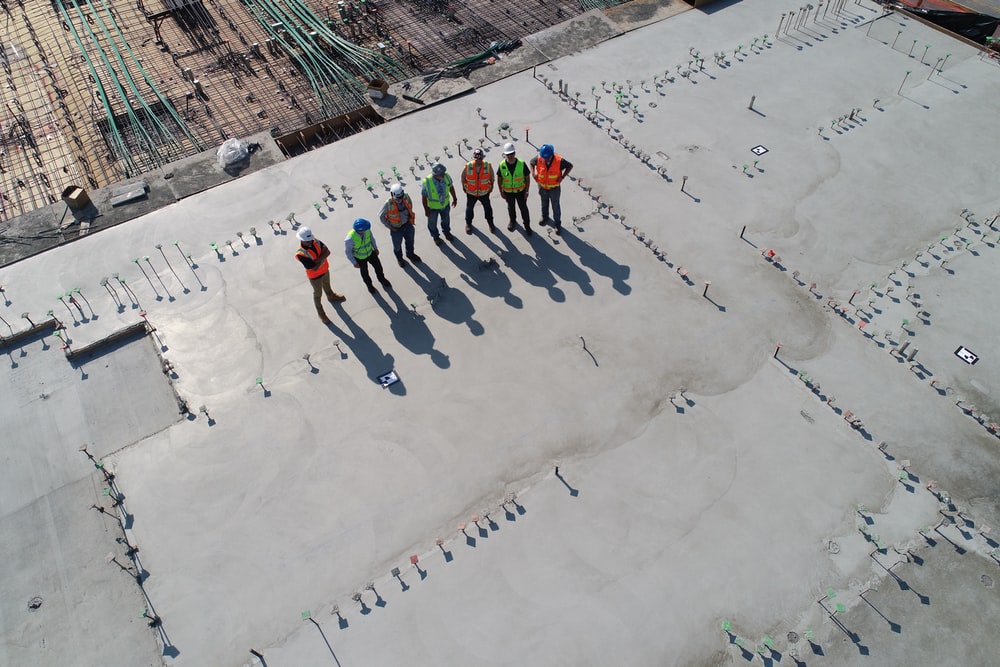
Do you know which activities on your site require a permit to work? Find out with our handy guide to the activities that require a permit to work, and how businesses can go about managing them.
When do businesses need to issue a permit to work?
Permits to work can be used for activities like electrical jobs, hot works, confined spaces, excavation, lifting, working at heights and plenty more. Any high-risk task that presents a hazard to employees, contractors and the general public may require a permit.

Why do these activities require a permit to work?
Put simply, some activities are more dangerous than others. Or rather, they carry higher risks. Permits are in place to ensure that these high-risk tasks can be managed well and made safer. This benefits both the workers on the ground and the people around them, as well as the business.
A risk assessment and method statement is part of the permit to work, which enables workers to fully understand the requirements of the job. Permits enable written sign off for a person to complete a job, under strict controls and safety measures.
Some of the kinds of tasks that need a permit to work are:
Hot works
Any job that has the potential to create a source of ignition. Eg – welding, grinding, heating or spark producing work like certain electrical jobs.
Confined space
Jobs in areas which may be deficient in oxygen or carry the risk of entrapment. Examples of jobs in confined spaces are things like working on storage tanks, boilers and pressure vessels or going underground to manage pipes and sewers.
Mechanical equipment and heavy machinery
Depending on the site, you may need a permit to work to use heavy machinery such as in groundwork.
Working at height
Any job that requires you to work at height may require a permit to work.
Any job where there is high risk may require a permit
Any task that is not a standard part of the job or business should have a permit to work. This includes tasks that have never been completed before, and any tasks that carry hazards above and beyond normal business operations.

Who chooses which jobs need a permit?
Every business will nominate a responsible officer who is qualified in health and safety and has the credentials to issue a permit to work.
For many businesses, permits are a requirement of Work Health Safety Regulations and failure to comply can have serious legal and financial consequences. The law imposes strict requirements to protect employees and surrounding communities, and a permit to work will often be an essential part of that process.
For example, operators of major hazard facilities (MHFs) must establish and implement a Safety Management System (SMS) that must be used as the primary means of ensuring safe operation. A permit to work system will sit under that umbrella – providing the paperwork to ensure that operations are running safely.
It is up to each business to appoint a responsible officer to carry out permit to work duties, and these people will assess which tasks will require a permit, in line with OHS requirements. Adequate measures must be in place to control the risk to health and safety associated with certain tasks, and all businesses must manage their own sites in line with WHS obligations.

Better to be safe than sorry
When it comes to permits to work, each site will have their own views on which tasks require them. Generally it is much better to take a conservative approach with permits to work, using them liberally on high risk tasks.
You may think this would be a lengthy process, but actually once you’ve streamlined your permit to work process it can be quick and easy to issue and manage permits to work.
Where high-risk tasks need to be carried out, a permit to work will:
- Helps make non-routine tasks that have the potential to harm people safer
- Manage the safety of workers and visitors to your site
- Ensure that a paper trace of permission to work has been created
- Manage the risks associated with more dangerous jobs
- Make safety protocol clear and get sign off that a worker understands the risks
- Document things like work instructions, including details for specific locations, departments, time of day, etc.

Need help with your permit to work process?
Beakon are permit to work specialists, delivering software solutions that make the whole process quick and simple.
Get in touch today to make your site safer.
